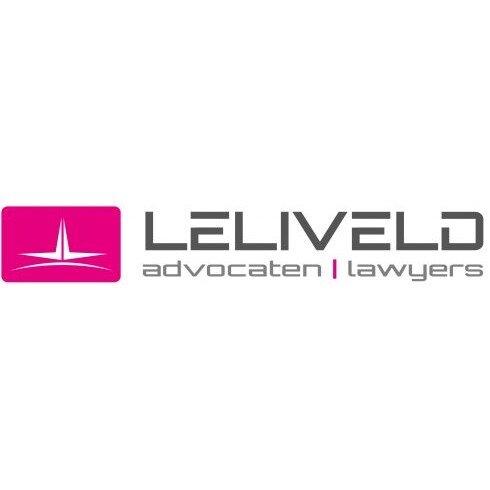Best Antitrust Litigation Lawyers in Maastricht
Share your needs with us, get contacted by law firms.
Free. Takes 2 min.
List of the best lawyers in Maastricht, Netherlands
About Antitrust Litigation Law in Maastricht, Netherlands
Antitrust litigation in Maastricht, Netherlands focuses on the enforcement of laws that promote fair competition in the marketplace. These laws, rooted in both Dutch and European Union regulations, are designed to prevent businesses from engaging in practices that restrict competition, such as cartels, abuse of dominant position, and unlawful mergers. In Maastricht, as elsewhere in the Netherlands, antitrust cases can arise in a variety of sectors, affecting consumers, businesses, and public interests alike.
Why You May Need a Lawyer
You may require the assistance of an antitrust lawyer in several situations, including when you suspect that a competitor is engaging in unfair trade practices or when your business is being investigated by competition authorities. Legal advice is also crucial if you are planning to merge with or acquire another company, want to challenge penalties imposed by regulators, or wish to bring or defend a claim for damages stemming from antitrust violations. Given the complexity of antitrust regulations and the importance of strict legal compliance, seeking legal guidance can protect your interests and help you navigate investigations, negotiations, and litigation.
Local Laws Overview
Antitrust law in Maastricht operates within the larger framework of Dutch and European Union competition law. The main Dutch legislation is the Dutch Competition Act (Mededingingswet), which is enforced by the Authority for Consumers and Markets (Autoriteit Consument en Markt, ACM). Key aspects relevant to Maastricht include:
- Prohibiting agreements and practices that restrict competition, like price fixing or market sharing
- Banning the abuse of a dominant market position, such as imposing unfair prices or limiting production
- Requiring prior review and approval of significant mergers and acquisitions that may impact competition
- Providing mechanisms for affected parties to seek compensation for harm caused by antitrust infringements
- Allowing enforcement by the ACM as well as private parties through the court system
Since Maastricht is part of the EU, European regulations, especially Articles 101 and 102 of the Treaty on the Functioning of the European Union (TFEU), also apply where conduct affects cross-border trade.
Frequently Asked Questions
What is antitrust litigation?
Antitrust litigation refers to legal proceedings where parties allege violations of competition law, such as anti-competitive agreements, abuse of dominant position, or prohibited mergers that harm market competition.
How are antitrust laws enforced in Maastricht?
In Maastricht, antitrust laws are enforced by the Dutch Authority for Consumers and Markets (ACM) and, in some cases, the European Commission. Enforcement can include investigations, fines, and orders to cease unlawful conduct. Private parties can also file civil lawsuits.
What are examples of antitrust violations?
Examples include price fixing, bid rigging, dividing up markets among competitors, abuse of a dominant position by a corporation, or unapproved mergers that substantially reduce competition.
Can individuals or companies sue for damages from antitrust violations?
Yes, individuals or companies harmed by anti-competitive conduct can seek compensation for their losses through the Dutch civil courts.
What penalties can be imposed for breaking antitrust laws?
Penalties may include significant fines, orders to stop certain business practices, annulment of contracts, and in rare cases, criminal prosecution for serious violations.
Do EU rules apply to antitrust cases in Maastricht?
Yes, EU competition rules apply to cases with effects on trade between EU member states. Maastricht courts and the ACM will apply EU law alongside Dutch law where relevant.
What should I do if my company receives an ACM investigation notice?
Contact an experienced antitrust lawyer immediately. Cooperate with authorities, preserve all relevant documents, and avoid any communication that could be misinterpreted as an admission of wrongdoing while you seek advice.
Can small businesses be involved in antitrust cases?
Yes, antitrust law applies to all businesses regardless of size. Small businesses can both commit violations and be victims of anti-competitive practices.
How long do antitrust cases typically last?
The duration varies greatly, depending on the complexity of the case, whether it involves appeals, and whether it is handled administratively or through the courts. Cases can last from several months to several years.
Is it possible to settle antitrust disputes out of court?
Yes, parties can settle disputes through negotiation or mediation. However, regulatory investigations may still proceed even if private parties reach a settlement.
Additional Resources
If you need more information or support related to antitrust litigation in Maastricht, consider consulting the following resources:
- Authority for Consumers and Markets (ACM) - the national regulator enforcing Dutch competition law
- European Commission, Directorate-General for Competition - handles EU-wide antitrust enforcement
- Maastricht District Court - where civil litigation on competition matters is heard
- Local business associations for guidance and referrals to legal professionals
- Independent legal advice bureaus operating in Maastricht
Next Steps
If you are facing a potential antitrust issue in Maastricht, start by documenting any relevant facts or communications and seek advice from a specialized antitrust lawyer. An initial consultation can help you understand your legal position, whether you are bringing a claim, defending against allegations, or responding to a regulatory investigation. Your lawyer can guide you through compliance, negotiation, and litigation as needed, ensuring your rights and interests are protected throughout the process.
Lawzana helps you find the best lawyers and law firms in Maastricht through a curated and pre-screened list of qualified legal professionals. Our platform offers rankings and detailed profiles of attorneys and law firms, allowing you to compare based on practice areas, including Antitrust Litigation, experience, and client feedback.
Each profile includes a description of the firm's areas of practice, client reviews, team members and partners, year of establishment, spoken languages, office locations, contact information, social media presence, and any published articles or resources. Most firms on our platform speak English and are experienced in both local and international legal matters.
Get a quote from top-rated law firms in Maastricht, Netherlands — quickly, securely, and without unnecessary hassle.
Disclaimer:
The information provided on this page is for general informational purposes only and does not constitute legal advice. While we strive to ensure the accuracy and relevance of the content, legal information may change over time, and interpretations of the law can vary. You should always consult with a qualified legal professional for advice specific to your situation.
We disclaim all liability for actions taken or not taken based on the content of this page. If you believe any information is incorrect or outdated, please contact us, and we will review and update it where appropriate.










